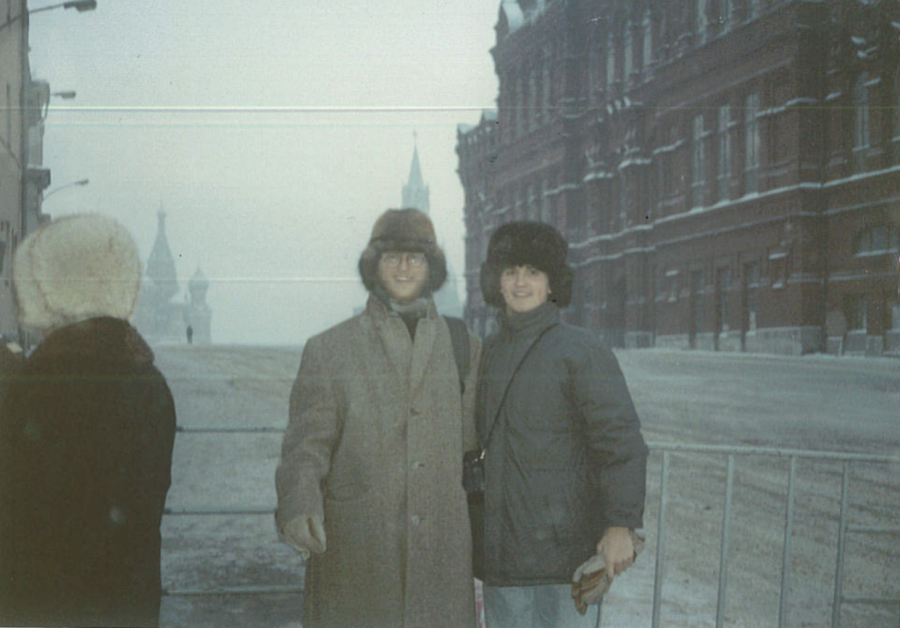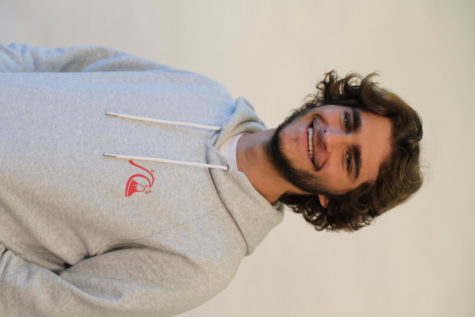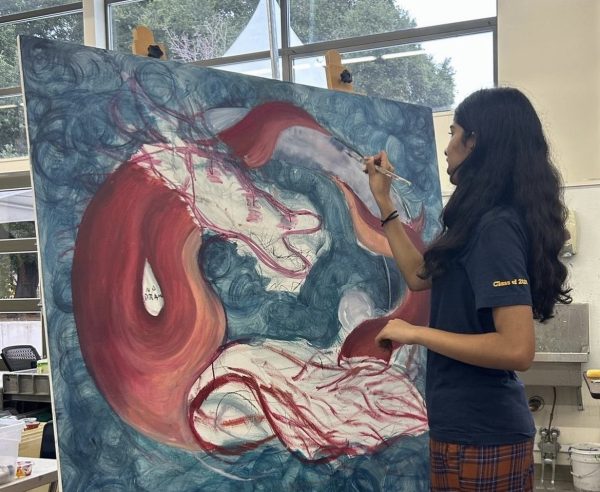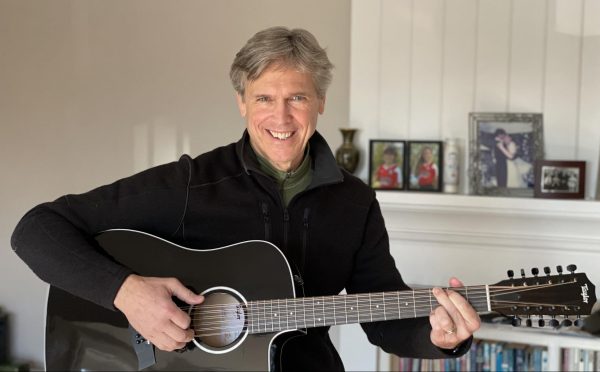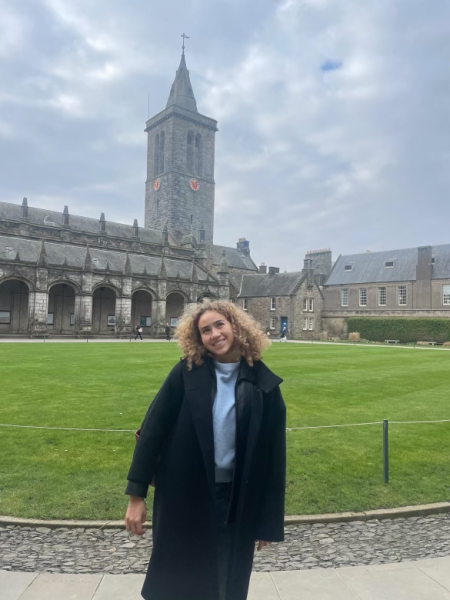Menlo Teachers Recount Their Experiences Living in Foreign Countries
Kitt (right) studied in the Soviet Union during a time of drastic change in 1989. Kitt experienced riots and protests while in Russia, but was also met with unparalleled kindness and hospitality.
May 23, 2019
“By far the most burned-into-my-memory image is the day I was dropped off in this tiny little town. And it’s the image of me looking down a long gravel driveway and seeing the car carrying away the only other American in town. And I’m thinking to myself, ‘what the hell have I done?’” Upper School math teacher Randy Joss said.
Joss moved to West Java, Indonesia on a dime right after college and spent two years there working for the Indonesian government helping develop small, local businesses. The spontaneity of his decision lead to an “amazing experience” that revealed a culture different to his own and what it meant to be a foreigner in someone else’s home.
“In Uganda, every morning, I would go running, and there’s this little girl who would always notice me and come out of her little house and be like, ‘Mzungu, Mzungu, you take me to America,’ Mzungu meaning Westerner, which was cute and funny, but was interesting because there was this weird relationship around Westerners bringing money or access to a better life,” Director of Community Engagement Chris Young said.
Living in all continents excluding Antarctica, Young is undoubtedly an experienced traveler. He’s lived in Brazil, Argentina, Czech Republic, Uganda, Costa Rica and China, aiding in leadership workshops, helping farmers setup small business and running a school program in China. Young also experienced many amazing cultures and made deep connections with people all over the world.
Menlo students are encouraged to travel to different cultures and are even given the unique opportunity through Menlo Abroad, and rightfully so, the emphasis of Menlo Abroad isn’t on the history of the country you visit, but “experiential cultural immersion” according to the menlo website. As all of these Menlo teachers can attest to, travelers remember most the experiences and connections they make when they get out of their comfort zone.
According to teachers who have done so, living in a different culture is an unforgettable experience. Whether studying abroad or working in a foreign country, travelers will get out of their comfort zone, meet new friends and experience cultural differences.
Making connections in different counties is important when traveling to foreign regions. These teachers agree that through sharing and experiencing cultural differences people begin to form bonds despite language barriers, religious differences and thousands of miles separating them.
Joss recounts a very unique story while living in Indonesia. In Islamic culture, it’s customary for a boy to get circumcised when he turns 13. Then, after the procedure, they have a huge party for friends, neighbors and family. As one of the very few people who had a camera in the village, Joss was asked to document the ceremony.
There were four men holding down the boy while the doctor was operating and one of the men passed out. As the only other man in the room, Joss was recruited to hold down this boy’s leg. “It was traumatic, no doubt, but there are so many things about that evening that are amazing to me. The fact that it happens at 13, the fact that the whole community is involved, the fact that they tore down the front wall of their home to expand the party while the boy is walking around in excruciating pain,” Joss said.
Living in a foreign country is all about getting out of your comfort zone to experience a different country and maybe change your view on the world. “Do most foreigners experience something as crazy as helping with a 13-year-old’s circumcision? Probably not, but still, the point is that you’ll do things you’d never expect and definitely create memories for the rest of your life” Joss said.
However, living as a foreigner in a different country can come with certain expectations and pressure. As a Russian major in college, Upper School History Teacher Andy Kitt studied abroad in 1989 in St. Petersburg during a drastic time of change. The Berlin Wall had just fallen and the Soviet economy and culture had begun to liberalize. He then returned to Russia for work in 1996 for an American consulting form.
Kitt experienced riots and protests while in Russia, and although he was mostly met with overwhelming kindness, there were times he was taken advantage of as a foreigner. “I got threatened in a hotel restaurant by a Russian guy who was just trying to impress me. […] That’s really why I stopped going [to Russia] because it was getting very dodgy and even a little violent. I got threatened more than once,” Kitt said.
While in China, Young felt like it was hard to become fully acclimated to the culture despite being there for over a year. “On a personal level with people day to day, it was very positive, but in the larger context you start to see that there’s limits to how much you’re going to be included. Ultimately, you’re a foreigner,” Young said.
All of these teachers remember their time abroad fondly, despite some pressures as a foreigner. When traveling or living abroad, some uncomfortable situations will inevitably arise such as a language barrier or not totally fitting in. “Obviously sometimes being in a new country will feel awkward at times” said Young. “But you have to get into these maybe uncomfortable situations to understand the culture and the people of the country.”


